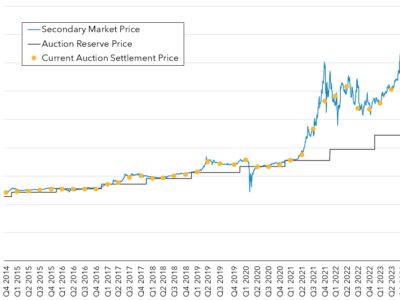Is Duke Energy Playing the Regulation Game?

Just a few hours prior to the July Fourth holiday, the New York Times reported that Duke Energy Corporation announced a $32 billion merger with Progress Energy, creating the nation’s largest utility. It will serve more than 7 million customers throughout the southeast and midwest.
Okay. But buried in the story was this nugget:
In the conference call, company executives said that one advantage of the combined company was that 85 percent of its business would be traditionally regulated, compared with 75 percent for Duke before the merger.
Hmm. I can see why a company might argue that deregulation would make them more profitable, but why would heavier regulation do it?
One could argue, I suppose, that companies would want traditional regulation, complete with vertically integrated monopolies, because the nature of power production is such that companies can only profit if these traditional regulations dominate. Otherwise, the natural monopolies would favor some players over others, and result in destructive competition.
But this is Duke Energy, now the biggest player in the nation. If any firm would not suffer from a deregulated power market, that would be Duke Energy. Under the traditional story, then, Duke should be looking for deregulated markets.
So I can’t help but sense rent-seeking here. Duke Energy likes traditional regulation because it gives them a monopoly, and they don’t have to worry about pesky competitors.
Energy deregulation got a (justifiably) bad rap after the Enron and California fiascos. And as far as I can tell, we have precious little data telling us that in those states (mostly outside the south and Mountain West) that deregulated have gotten better deals or more reliable power for their consumers. (For those of you on the east coast, you don’t me to tell you that). But that hardly means that the traditional system was particularly good. The theoretical justifications for deregulation are still quite strong; the devil, as always, is in the details.
In the meantime, Duke Energy seems certainly to know how to chase after rents.








Reader Comments